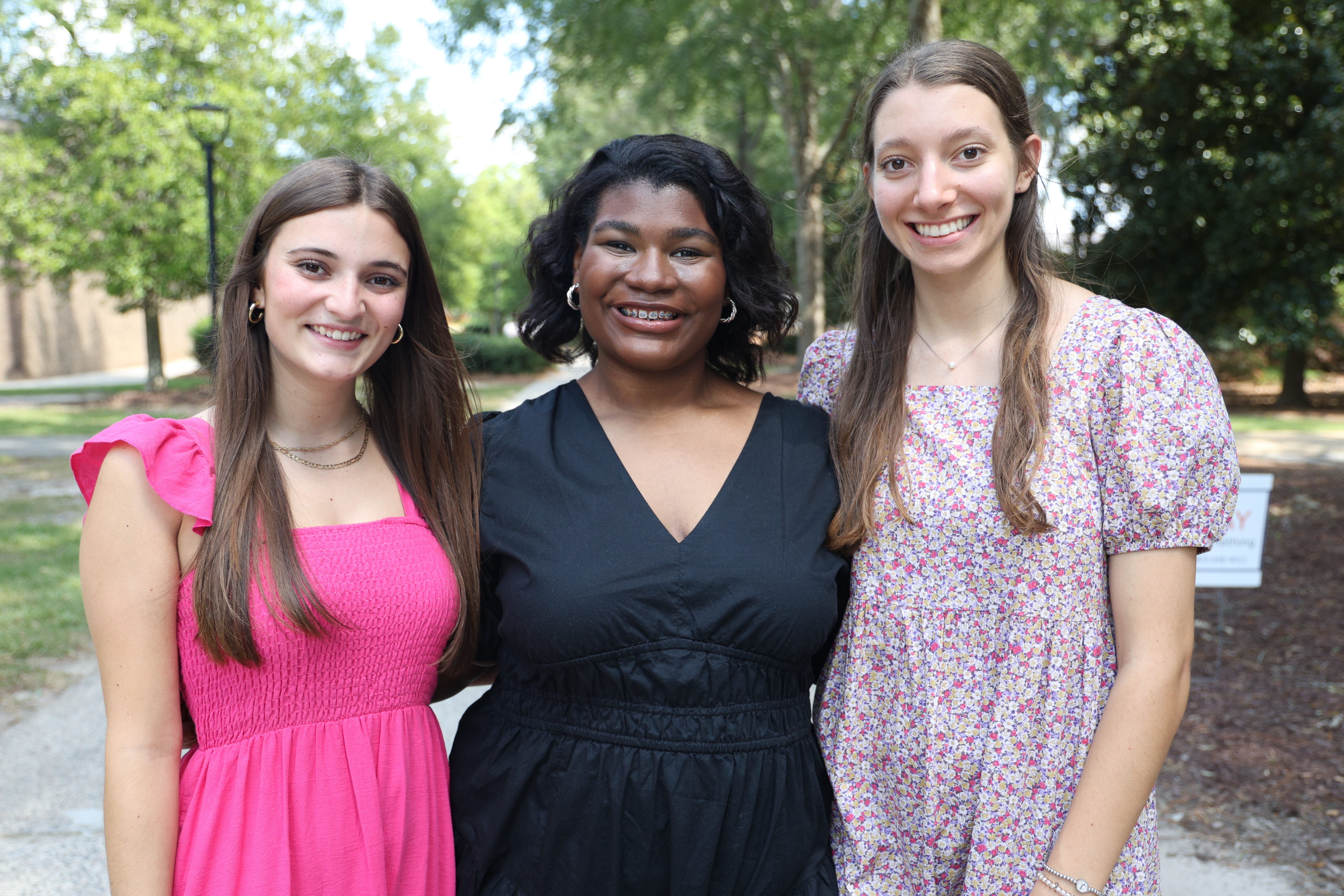Search
Browse All USCA.edu
USCA Teaching Fellows celebrates 10 years

This year, USCA marks the tenth anniversary of its Teaching Fellows program. As the university celebrates this milestone, Associate Vice Chancellor for Academic Affairs, Timothy Lintner, who serves as the Teaching Fellows campus director, reflects on the history of the program and the legacy established by its first cohort in 2015.
The S.C. Legislature developed the Teaching Fellows program in an effort to recruit the most qualified teachers for South Carolina public schools. The program is a fellowship that provides $24,000 over four years for 220 outstanding high school seniors—with the expectation that they will teach in a South Carolina public or charter school for at least four years after graduation. USCA is one of only 14 schools in South Carolina identified as a Teaching Fellows institution.
The Legislature mandates that each Teaching Fellows program include: a freshman bonding experience, sophomore leadership cohort, two-day professional junior conference, and Hill Day, when seniors visit the statehouse to advocate for South Carolina teachers. Outside of those four requirements, institutions have the freedom to design their own curriculum. Lintner tasked the 10 freshmen in his original cohort with setting the standard for what a USCA Teaching Fellow should be.
“When we first started, we didn’t have a playbook but rather the joy and opportunity to make this program what we wanted it to become,” Lintner says. “We defined who we are as a program, and we still have those values a decade later.”
Angelika Davis-Raby and Alex Richardson were among the original freshmen. Davis-Raby, a third grade teacher at North Augusta Elementary School, says, “We had no idea what we were doing, but we formed a bond of togetherness and unyielding support system that we based ourselves upon. We knew we were walking one another through the journey of education, but also the journey of life. We fed off of Dr. Lintner’s energy, and he doesn’t take enough credit for the impact he had on us.”
The cornerstones identified by the original cohort consisted of community, teacher leadership and advocacy. The university accepts just 10 to 12 new Fellows each year, with a total of 35 students in the program. According to Lintner, the program’s size is an advantage, offering a tight-knit community with personalized attention.
“Because we’re small, we can do things other programs cannot do. We can be nimble, flexible, and change on a dime. We have the freedom to decide what we want this program to do,” Lintner says.
All Fellows are encouraged to take leadership positions on campus and are required to complete the Leadership USCA certificate program. They also learn how to serve as advocates for their profession, community and students, such as through policy change. Experiential learning begins immediately, with students placed in local public schools within their first two weeks on campus.
According to Richardson, a social studies teacher at Batesburg-Leesville High School, the experiential learning component is part of what makes the USCA program so special.
“Many programs don’t offer hands-on experiences until senior year, but we were out in the schools during our freshman and sophomore years,” Richardson says. “The only way to get good at teaching is by doing it. Right out of the gate, we were in the classroom, learning what it means to be a teacher.”
Both Davis-Raby and Richardson have carried the Teaching Fellows principle of leadership from the classroom into their careers. In addition to teaching social studies, Richardson launched the archery and clay target teams at Batesburg-Leesville High School and serves as head coach for those teams. He strives to instill leadership values in his students and athletes, assigning them responsibilities when the teams host events. He was also named the school’s 2023-24 Teacher of the Year.
“I grew up with archery and clay target shooting, and I wanted to bring those opportunities to our community,” he says. “That’s what the Teaching Fellows program stands for—standing out from the pack and finding opportunities to be a better teacher. I’m teaching my students to be self-advocates and not wait to be given instructions. Jump in and do what needs to be done.”
For Davis-Raby, the principles of Teaching Fellows have inspired her to continue her growth as a teacher and serve as an advocate for other teachers, students and parents. She is preparing to return to school for her second master’s degree in education administration and encourages her peers to never stop learning.
“As teachers, we should continue to learn and grow within ourselves,” she says. “We are always teaching, always growing, always learning. It was ingrained in us to be as successful as we can, not just in our jobs but as people.”
In the last 10 years, the core Teaching Fellows principles have remained the same, but true to the spirit of the program, outreach to the local K-12 community has grown. During the 2024-25 school year, the Fellows began a literacy night series through Aiken County Public Schools, where volunteers have the opportunity to interact with students and parents, honing their craft in a true teaching setting.
“It presents both Fellows and the teaching profession in a great light. The school principals see the caliber of our Fellows, and their support resonates throughout the district and the university,” Lintner says. “It is one of many examples of the legacy created by the first cohort that continues every year of the program. We asked them to shape the program, and they rose to the occasion.”
For more information, contact us at news@usca.edu.